ATSE Awards 2024 winners
Meet each of the winners of the individual ATSE Awards and watch short videos to hear them talk about their inspiring and innovative work.
Meet each of the winners of the individual ATSE Awards and watch short videos to hear them talk about their inspiring and innovative work.
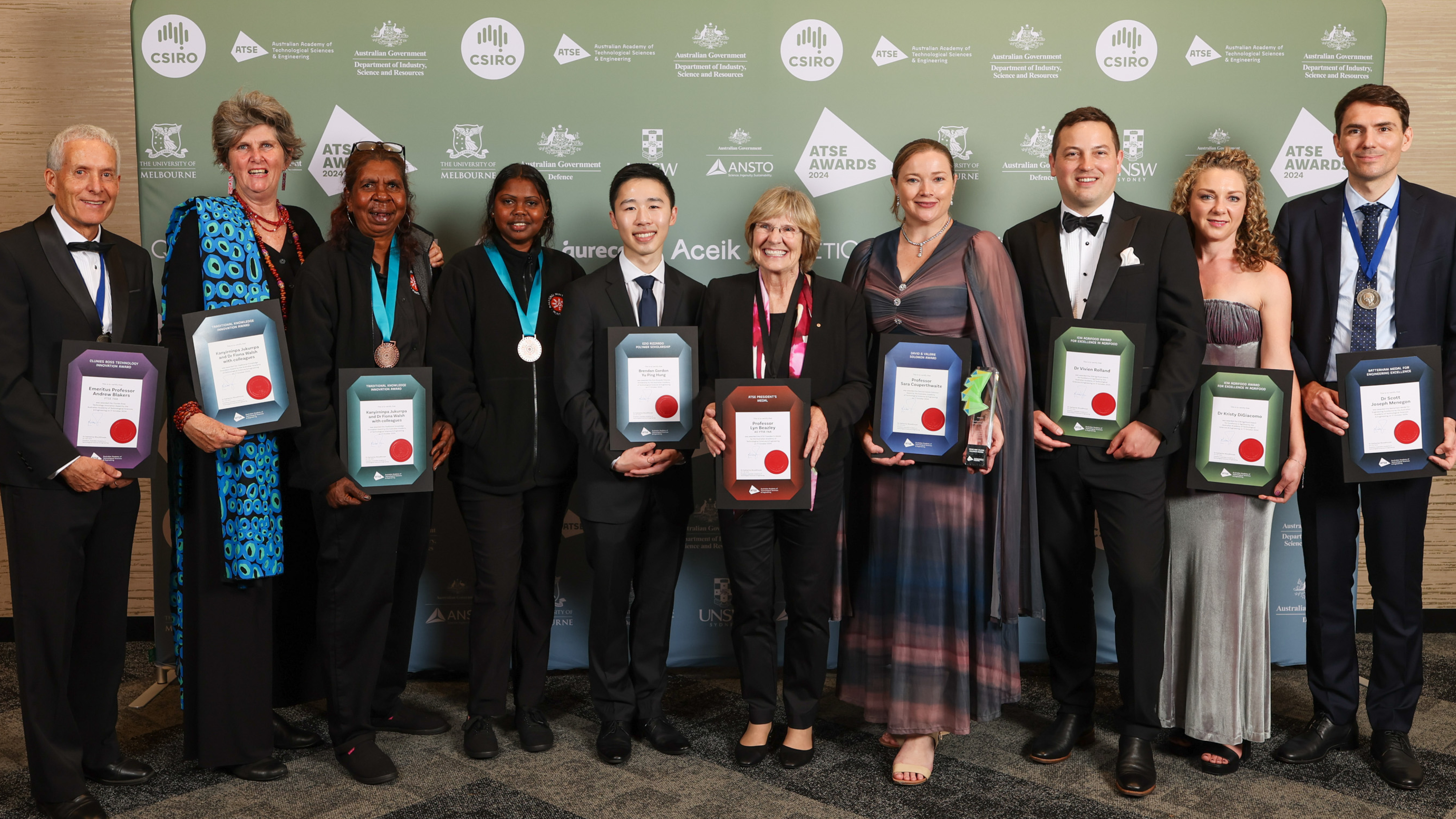
Professor Andrew Blakers FTSE FAA — Winner of the Clunies Ross Technology Innovation Award
Fiona Walsh with Carol and Emilesia Williams on behalf of Kanyirninpa Jukurrpa – Joint winners of the Traditional Knowledge Innovation Award
Brendan Hung — Winner of the Ezio Rizzardo Polymer Scholarship
Professor Lyn Beazley AO FTSE FAA — Winner of the ATSE President’s Medal
Professor Sara Couperthwaite – Winner of the David and Valerie Solomon Award
Dr Vivian Rolland — Winner of the ICM Agrifood Award for Excellence in Agrifood
Dr Kristy DiGiacomo — Winner of the ICM Agrifood Award for Excellence in Agrifood
Dr Scott Menegon — Winner of the Batterham Medal for Engineering Excellence
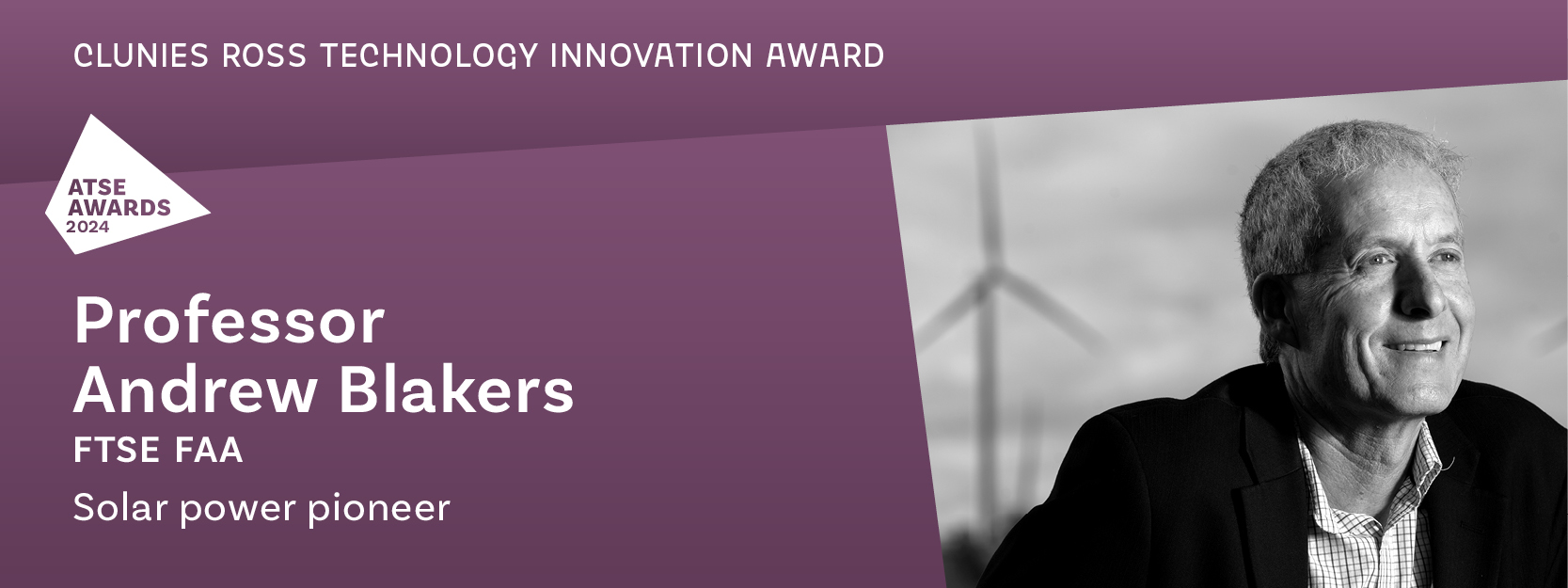
Professor Andrew Blakers has made transformational contributions to the renewable energy transition. Andrew was instrumental in designing and creating silicon solar cells in the 1980s. Alongside colleagues, Andrew went on to develop the PERC (Passivated Emitter and Rear Contact) solar cells that are at the heart of the worldwide solar industry and are currently mitigating an estimated 2% of global greenhouse emissions through displacement of coal generation. Andrew and his co-inventors won the 2023 Queen Elizabeth Prize for Engineering for developing this technology.
He has also led the creation of a comprehensive global atlas of about one million potential sites for off-river pumped hydro energy storage with combined storage potential equivalent to about one trillion electric vehicle batteries. A Professor of Engineering at the Australian National University, Andrew’s record of entrepreneurship, innovation and outreach is exemplary. Andrew is one of Australia’s top renewable energy researchers known by millions.
> Learn more about the Clunies Ross Technology Innovation Awards
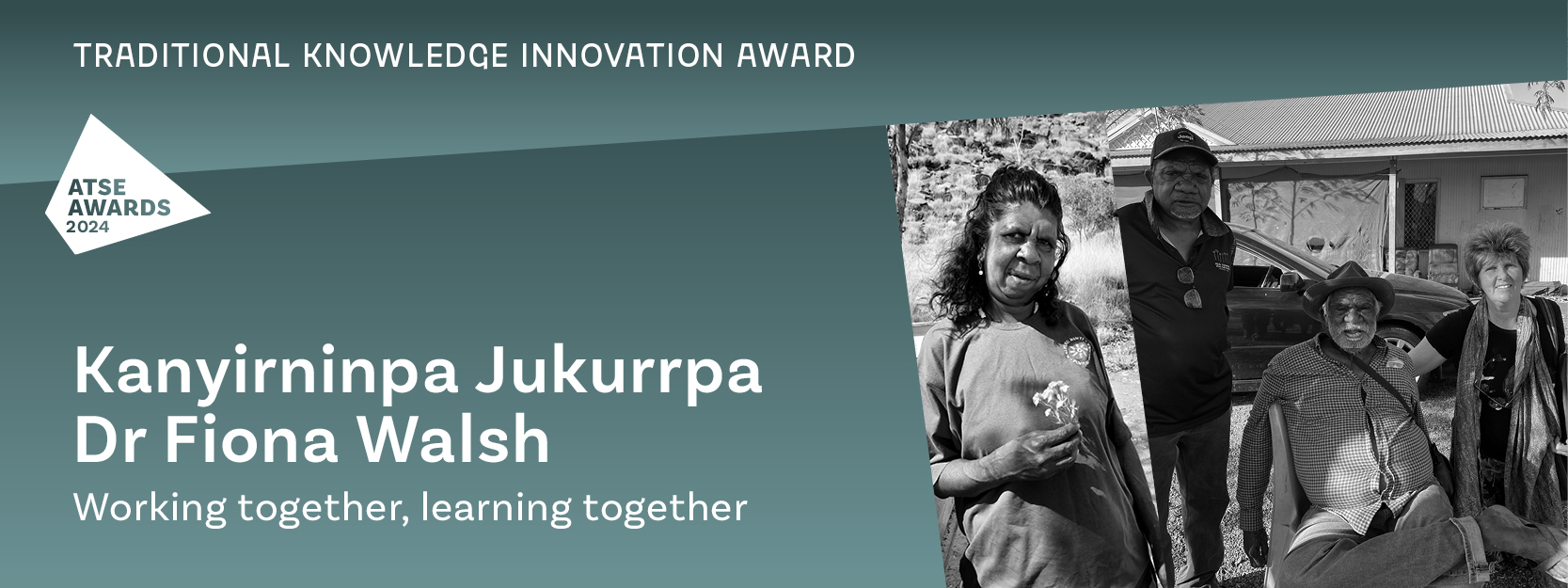
‘Fairy circles’ are patches of bare earth that polka-dot Australia’s arid grasslands in desert country. They were thought to be the result of competition between spinifex plants, according to research based on similar landscape features in Namibia. A deep collaboration between the Martu people of the Eastern Pilbara through local Indigenous organisation Kanyirninpa Jukurrpa and non-Indigenous scientists upended this interpretation. The collaboration also disproved the notion that Australia lacks climate and ecosystem data for our desert regions and demonstrated that Indigenous knowledge can lead Australian and international environmental research. The Martu people call these fairy circles linyji. They know linyji to be the home of spinifex termites called Wartunynuma. Linyji have long been used by desert people as temporary water sources, places for seed processing and resin making, and other domestic tasks.
Guided by Kanyirninpa Jukurrpa and ethnoecologist Dr Fiona Walsh, the groundbreaking project wove together Traditional Knowledge with environmental surveying and engineering methods. As a result, shared understanding of the linyji termite pavements has revealed their foundational role in desert art, cultures and ecosystems. The interdisciplinary and cross-cultural project has been hailed as a study that shows how to respectfully weave together Traditional Knowledge with western science, uplifting Aboriginal voices, expertise and communities.
> Learn more about the Traditional Knowledge Innovation Award
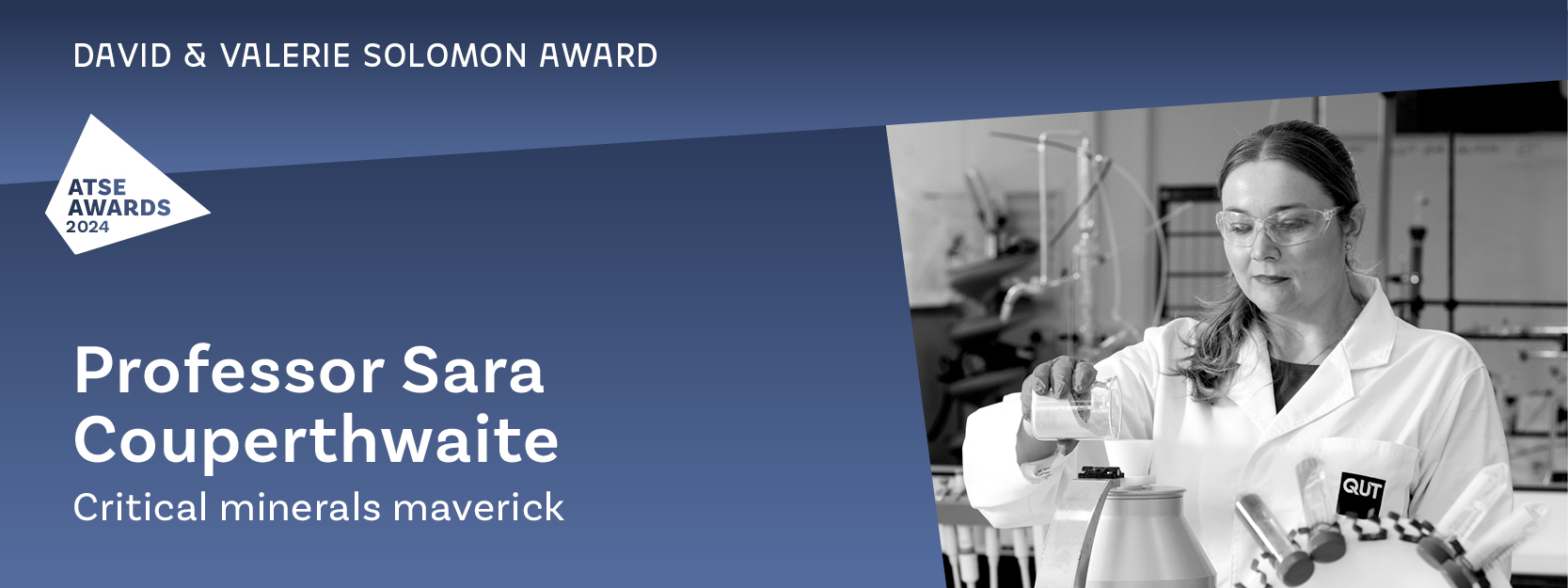
Professor Sara Couperthwaite is an industrial chemist at Queensland University of Technology. Her research aims to transform the sustainability of mineral processing and secure critical minerals to power the renewable energy transition.
Sara leads a research team that achieved a breakthrough in the production of high purity alumina (HPA), a material that improves the performance and safety of lithium-ion batteries. In a cutting-edge partnership with Lava Blue, she is developing and commercialising a pathway to transform mining waste, which currently fills tailings dams across Australia, into HPA for export markets. This innovative collaboration was awarded a 2023 Australian Financial Review Higher Education Award (Industry Engagement). Sara has also received an ARC Mid-Career Industry Fellowship to focus on developing sustainable critical mineral supplies using technology not dependent on fossil fuels. Sara is passionate about fostering a future sustainability-oriented workforce, through industry-immersive pathways for science and engineering students, and through training at the Lava Blue ‘mini-plant’ to increase Australia’s capacity in critical minerals.
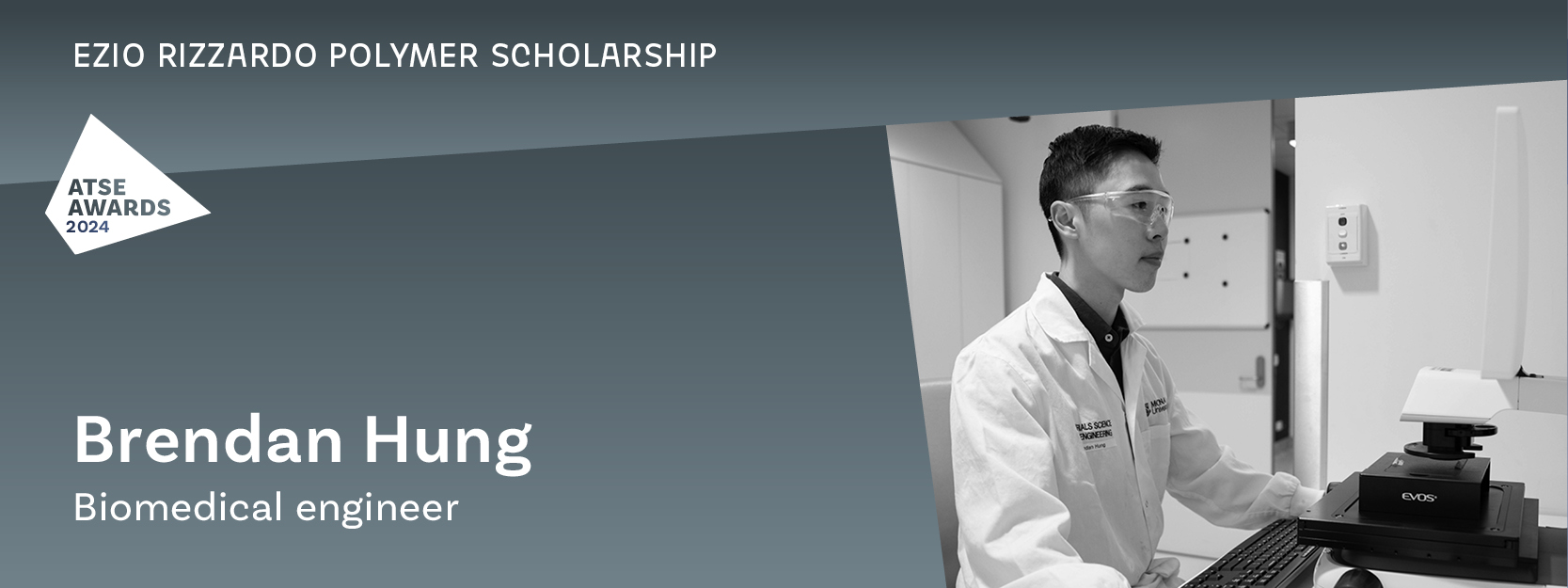
Brendan Hung is a rising star in polymer science whose research spans biomedical science and engineering. As a first-year PhD candidate at Monash University, Brendan aims to develop a new way to study digestive system disorders by capturing intricate human biology in a dish. Disorders of the intestine – like inflammatory bowel disease and colorectal cancer – are complex, and tricky to mimic in animal models or in a test tube. Brendan plans to engineer innovative hydrogels and combine them with microfabrication techniques to create a more accurate and reproducible model of human intestinal tissue. The model can then be used to study gastrointestinal diseases in closer detail and find new therapies to treat them.
Brendan earned his Bachelor of Biomedical Science and Bachelor of Engineering (with First Class Honours) from Monash University in 2023, achieving an excellent academic record including numerous Dean’s List commendations. He is a superb scientific communicator, leading outreach to high school students and the public through the Monash Forge student team.
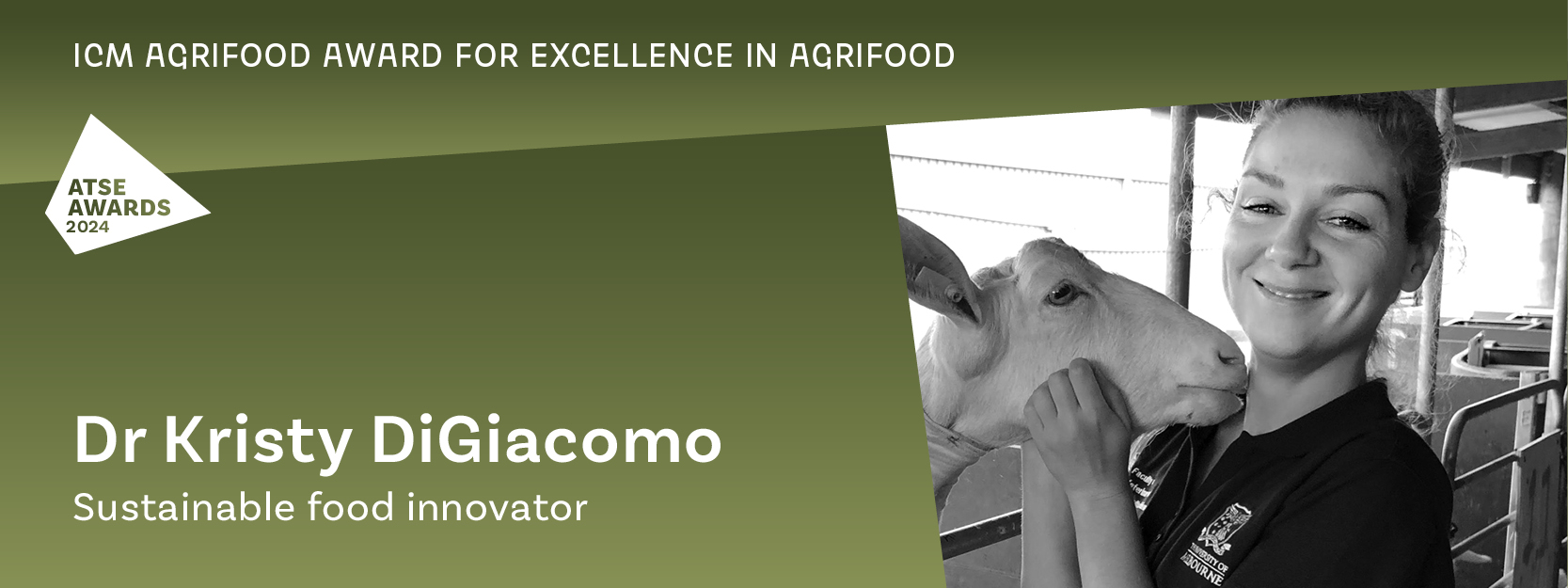
Dr Kristy DiGiacomo is generating real-world impact in Australian animal production, improving both productivity and sustainability. Her investigation into lactating dairy goats led to Australia’s largest goat dairy changing their kid rearing and feeding regimes.
Kristy is also advancing our understanding of how to use insects as a sustainable food source for livestock animals. In this research, food waste is used to grow black soldier fly larvae, which are then harvested and processed to make an insect-based product rich in protein and fat. Kristy is assessing how incorporating this insect protein into an animal’s diet affects growth, health and meat quality.
Based at the University of Melbourne, Kristy is a senior lecturer in production animal nutrition and physiology and is a Veski sustainable agriculture fellow. She has cultivated strong research partnerships with industry and supervises numerous research students. Kristy is passionate about women’s leadership in science and is the current federal treasurer of the Australian Association of Ruminant Nutrition.
> Learn more about the ICM Agrifood Award for Excellence in Agrifood
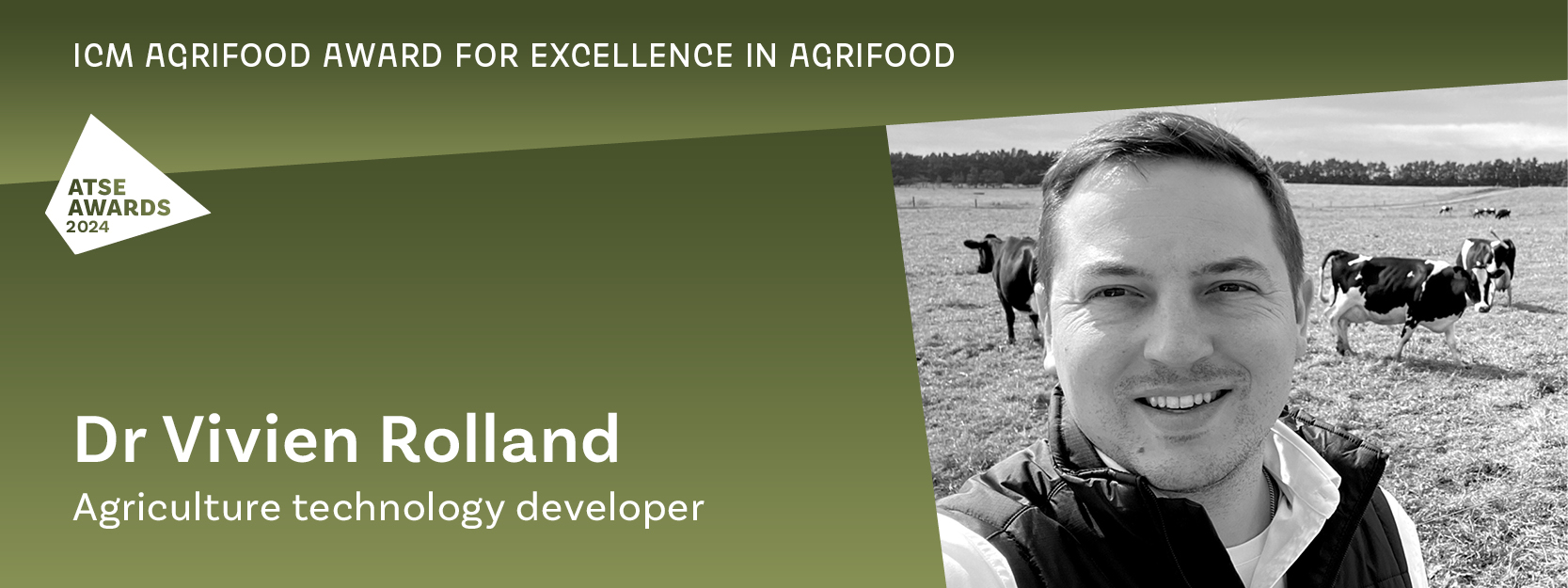
Dr Vivien Rolland develops state-of-the-art artificial intelligence (AI) and imaging tools to enhance the productivity and sustainability of key food, oil and fibre crops. Two of his AI imaging inventions support selection of cotton crops based on leaf hairiness, enabling a world-first ability to better breed for fibre yield and insect resistance. He has also developed a more accurate tool for monitoring wheat growth and is extending these approaches to food quality and safety.
A senior research scientist at CSIRO and leader of the Crops Digital Twin team, Vivien has an outstanding ability to transform ideas into tangible outcomes. His AI tools are being rolled out in a commercial breeding program, with further expansion of the technology to other valuable crop traits being funded by industry. Vivien won the ACT Young Tall Poppy Scientist of the Year award in 2022, and in 2023 was awarded a Nuffield Fellowship. His outreach efforts engage both the public and decision-makers with science, and he has been invited to participate in the FAO World Food Forum and the UN Committee on World Food Security as an expert on agrifood innovation.
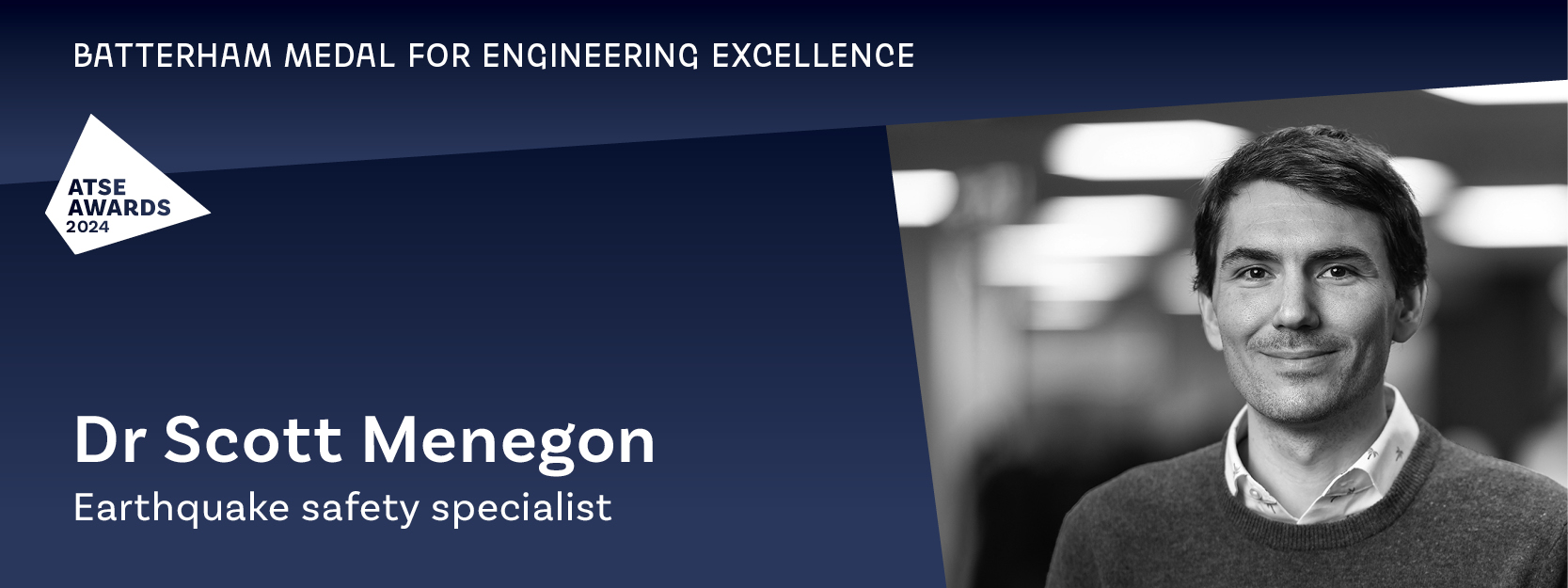
A structural engineer and senior lecturer at Swinburne University, Dr Scott Menegon is improving the design of multi-storey buildings across Australia – from hospitals to 60-storey apartment blocks.
With expertise in earthquake engineering, Scott’s research into both reinforced and precast concrete is helping to better prepare Australia for earthquakes – which are low-probability but high-consequence events. His research has informed Australian building standards, and he has undertaken several large-scale seismic testing programs. He is currently developing next-generation precast concrete cores as part of an innovative industry collaboration. Scott is enthusiastic about translating his research to real-world impact through education and industry guidance. He has delivered seminars and short courses to more than 2,000 practising engineers over the last five years, is the current president of the Australian Earthquake Engineering Society and has been awarded Engineers Australia’s RW Chapman Medal twice (in 2019 and 2022).
> Learn more about the Batterham Medal for Engineering Excellence
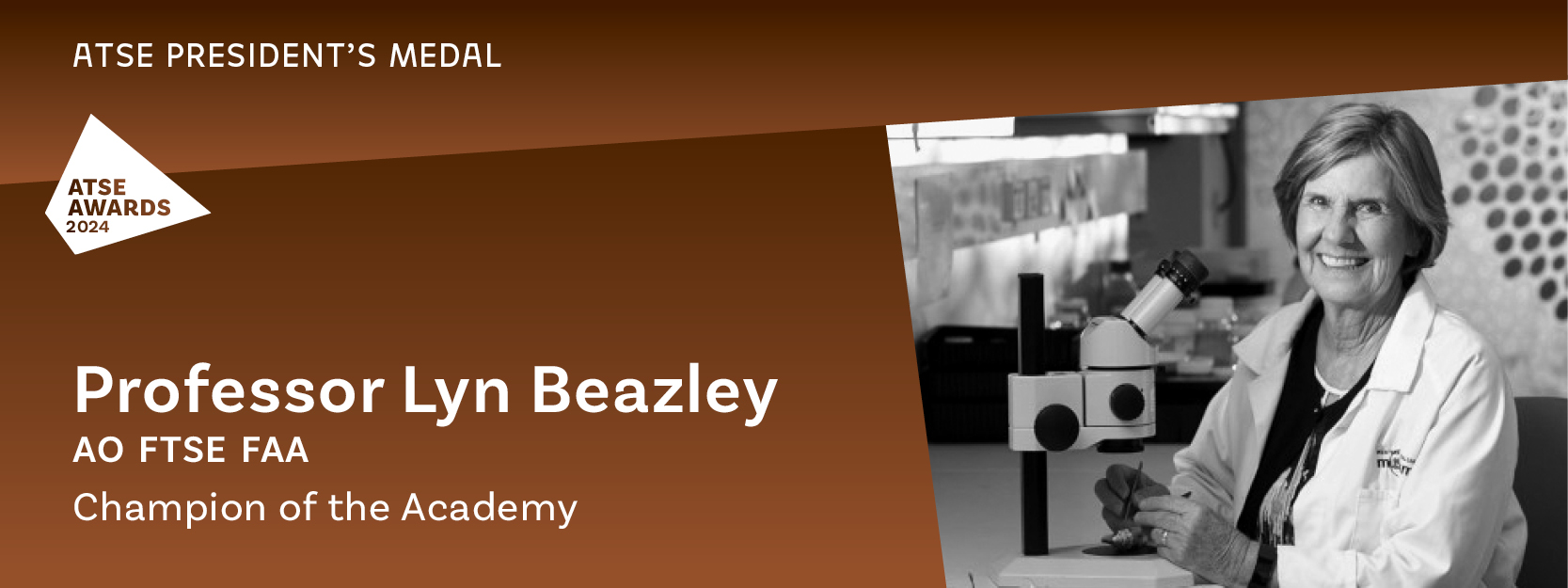
A neuroscience researcher who went on to become Chief Scientist of Western Australia, Professor Lyn Beazley has been deeply involved in Australian science, innovation and technology for many decades. She played an important role in the development of ATSE’s modern governance processes, and has been an active champion of the IMNIS program since its inception as an idea out of WA. Her promotion of STEM within political, scientific, educational and lay communities has helped drive the uptake of new technologies and innovations across society.
She was elected in 2009 and has been involved in the Education, Water and Energy Forums in her time as a Fellow. She spent many years as a member of the Membership Committee, the International Steering Group and the Clunies Ross Awards Committee, and continues to advocate for science and equity with a special focus on getting young people into STEM.